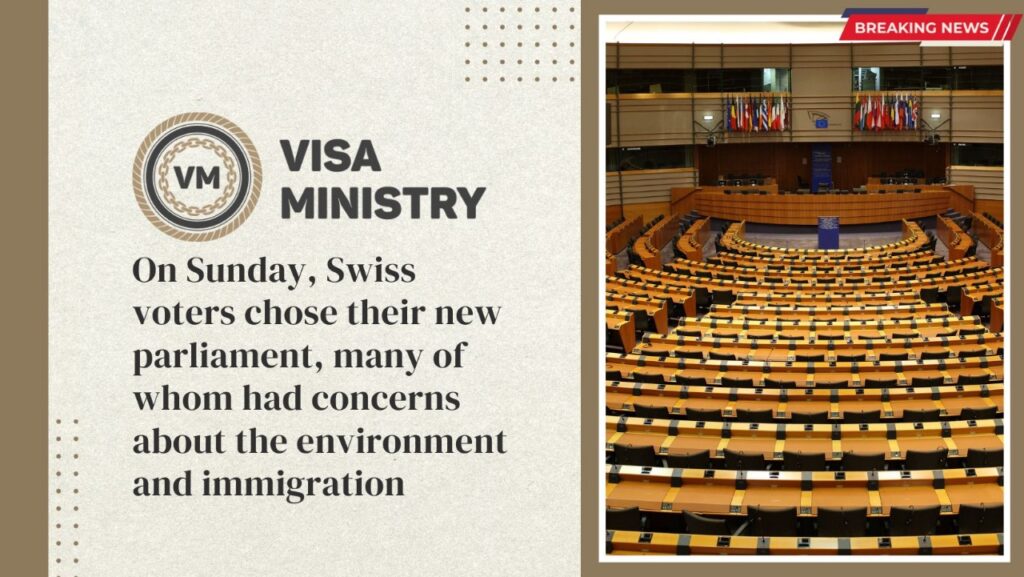On Sunday, Swiss voters chose their new parliament, many of whom had concerns about the environment and immigration.
The majority of Swiss citizens voted by mail, and the final ballots will be gathered on Sunday morning. Both houses of parliament are at stake.
The country’s centrist party may win more seats in parliament’s lower house than the free-market party, strengthening their position in the executive branch. The main stakes, if pollsters are correct, are whether two Green parties perform worse than they did in the previous election in 2019.
According to polls, the Swiss are primarily concerned about three issues: climate change, which is eroding Switzerland’s numerous glaciers; rising costs for the mandatory, free market-based health insurance system; and concerns about refugees and immigration.
The decision could be a sign of how another group of Europeans are approaching right-wing populist politics and the need to invest money and resources in the battle against global warming at a time when inflation is on the rise and many people’s wallets are being squeezed, even in wealthy Switzerland.
The Federal Council, which includes President Alain Berset, who has decided to resign from office at the end of the year, will ultimately be determined by the vote for the legislature, which takes place every four years.
The Swiss president, who serves as the country’s ambassador abroad, is basically “first among equals” in the seven-member council. Each member holds a portfolio as a government minister, and they alternate each year occupying the top position, which is largely ceremonial.
The moderate Viola Amherd would succeed socialist Berset as mayor the following year. The right-wing Swiss People’s Party, the Socialists, the pro-free market Liberals, and the Center party, each with one seat, are the four largest parties in the council. Council members, also referred to as “department chiefs” informally, are appointed by parliament and are eligible to serve for life or for as long as they like.
Thus, there aren’t many significant changes in the council’s makeup; as a result, Berset’s seat will be open for grabs among his Socialist siblings. And if the Center party outperforms the pro-free market Liberals, they might take one of the two Liberal council seats.
The two-two-two-one balance of seats in the Federal Council is referred to as Switzerland’s “magic formula”; it is intended to reduce the likelihood that any one person will hold an excessive amount of power and to ensure balance in the functioning of government. Add to that Switzerland’s direct democracy, which allows citizens to cast ballots for a variety of political decisions four times a year on average. Parliament must react to those referendum results.
In a broader sense, Switzerland has found itself torn between its much-lauded “neutrality” in international affairs and two fundamental components of its identity: Western democratic norms like those in the European Union, which Switzerland has declined to join.
Relations between Brussels and Bern, two important economic partners, have worsened due to a protracted and impasse over more than 100 bilateral Swiss-EU accords on topics like police cooperation, commerce, tax, and agricultural policy.
The Swiss did support the EU in imposing sanctions on Russia due to its involvement in the crisis in Ukraine. The Federal Council is debating whether to declare Hamas a terrorist group with the EU and the US. The United Nations and Switzerland have both designated Al-Qaida and ISIS as terrorist organizations.
According to the IMF, Switzerland, which has a population of only 8.5 million, ranks 20th in the world in terms of economic output. It is also the center of the world’s wealth management, where the wealthy of the globe park a large portion of their income to take advantage of low taxes and a private environment. (AP)
Source- Hindustan times
